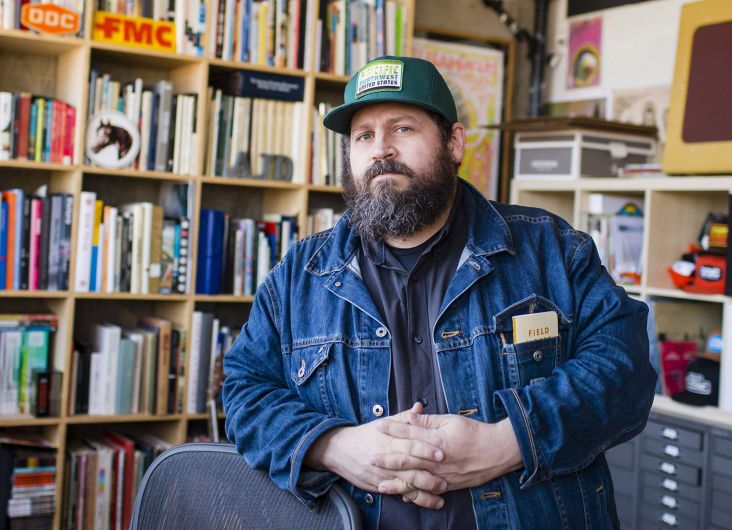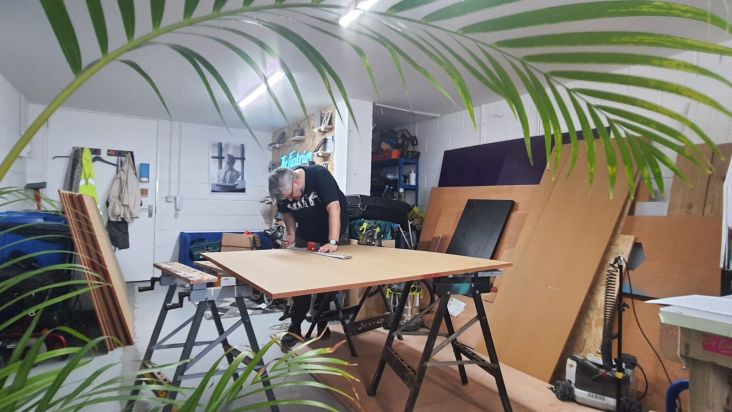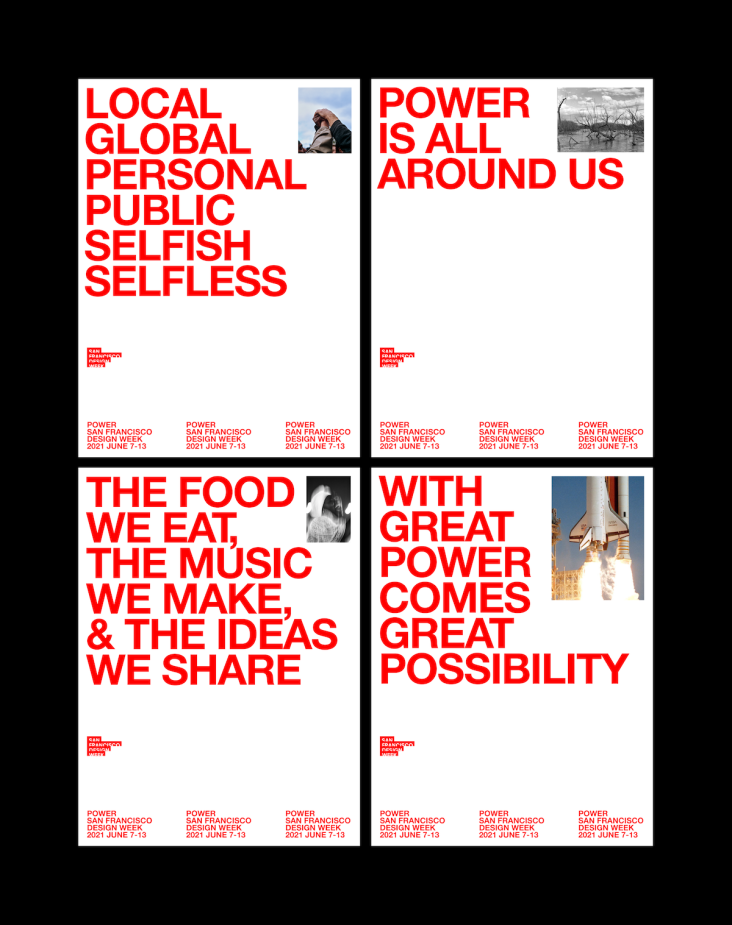Why you might want to switch to a four-day work week
In the creative industries, we all talk about the importance of work-life balance. Of how nobody ever lay on their deathbed and thought: "I wish I'd spent more time at the office". But what practical steps have you taken to ensure you don't work too much and actually get the time with your family and friends you deserve?

Image licensed via Adobe Stock
Well, one very clear and purposeful way we can move towards a better life balance is by switching to a four-day week. It may sound like a pipe dream. But it's increasingly a reality for millions.
The country of Iceland has led the way, with trials in which workers were paid the same amount for shorter weeks between 2015 and 2019. According to researchers, productivity remained the same or improved in most cases, and now similar trials are being run across the world, from Spain to New Zealand. And within the creative industries, too, four-day weeks are becoming an increasingly mainstream strategy.
Take David Blake, founder of All the People, a content studio based in Manchester. "I've been working four days per week since our little boy was about six months old," he explains. "I was about to begin a new job and negotiated a four day week as part of the package. It did mean taking a 20% salary cut, but I reasoned that he'd only be this age once, and having that extra day together, just us two, was worth much more."
David has never regretted that decision. "Not once, even when he's been a little git," he smiles. "It's also meant that my wife, who's started her own business, had more time to make that work, and she's doing amazingly well."
Finding a balance
As you might expect, switching to a four-day week hasn't been without its challenges. "Initially, I was squeezing five days' work into four days, which meant when I was working, I was just doing longer hours, but for less money. This created pressure at home and really defeated the whole purpose of working four days per week. I did eventually begin to find a balance, but then the pandemic hit, and the concept of a set 40-hour, five-day working week was being questioned by almost everyone."
The long-term outlook for David's employer wasn't looking good at this point, so he decided to set up on his own instead. And while for many people, that kind of pressure leads to something closer to a seven-day week, David has stuck to four, and it's worked beautifully.
"While I've been working very hard, I've rarely missed that extra day with Alex," he says. "We still go to the park, petting zoo, soft play, trampoline centre, or something else every Friday." And there's been a financial benefit too. "He goes to nursery three days a week, and that costs £750 per month. We stick him in an extra day per week, and you're looking at another £3,000 per year."
More profoundly, the pandemic made David appreciate the value of time, especially that spent with his family. "I'll never look back and wish we'd spent less time together… which is really all the justification you'll ever need," he reasons.
The gains in productivity, personal time and overall happiness are clear. The world is slowly moving to a four-day week, and the question to ask yourself is... why shouldn't you?
Productivity boost
Of course, you don't have to have kids to benefit from a four-day week. There are many other benefits to working fewer days, most notably the bounce many people report in their productivity.
"I've been on a four-day week since May," says copywriter Sally Fox. "I find it helps me focus, and I'm much more productive in the four days." And what's good for individuals is also good for organisations, it seems.
For example, Sam Goss, founding director of barefoot architects, chose to move to a four-day week in January 2020 and hasn't looked back. "Our productivity and turnover has increased, and staff are happier and healthier," he reports.
And really, isn't it all about the staff, ultimately? Without good people, a company is just a heading on some notepaper. And that's exactly the thinking that prompted United Us to move to a four-day week this August.
"Coming to this decision hasn't been a hard one," says partner Luke Taylor. "We haven't prioritised pipelines, or worried about lost opportunities. Our focus is and always will be, the happiness and health of our staff. Without them we aren't the agency our clients love.
"Therefore our thought process has been an easy one: would our team be better mentally, physically, emotionally, if they were supported to recover from a really challenging period of our lives? And the answer is always going to be, yes! Our clients understand that, value that and support us."
Keeping clients happy
Luke's words answer a common fear about moving to four-day weeks: upsetting clients. After all, if the rest of the world is working Monday to Friday, won't they feel left out and unsupported if you aren't?
In practice, as long as you communicate effectively, it seems not. Take freelance senior creative artworker Claire Palmer. "I've freelanced Tuesday to Thursday for six years, and it works really well," she says. "My client has Monday to get everything ready, I hit the ground running Tuesday morning, and it goes back to them on Thursday afternoon for review. If something is urgent, I'm able to do an extra Monday or Friday here and there."
Founder and MD Ben Veal tells a similar story. "I've worked a strict four-day week ever since setting up Second Mountain Comms," he says. "I spend every Wednesday looking after my two-year-old son, and I'm so grateful to be able to do so. Clients are absolutely fine with it; it's been a rigid rule from day one, and so it's just been accepted."
After all, clients are people too, aren't as daft as we often believe. Explain why you're moving to a four-day week and how it can benefit them, and they'll usually be straight on board. That's what copywriter Graeme Parton has found, for one.
"I started taking Fridays off when work first slowed down at the start of the pandemic," he explains. "It felt silly spreading what I did have over five days. But even when things picked up a bit, I stuck with it. I told most clients just to set expectations on email replies etc., and most people I've told have reacted positively. I've had a couple say, 'I wish we could do that.' I think most people are aware that motivation wanes a bit on Fridays anyway."
The most likely way it can all go wrong is that a client doesn't pay attention and only finds out you don't work a certain day when it really matters. For this reason, veteran artist, curator and consultant Jimmie Wright suggests you: "Add your office times to your email signatures, and other digital media, to make it crystal clear. Communication is key."
Also, think carefully about which extra day to take off because it could make all the difference. Co-founder of SheWorks-Macc Lucy Yates advises not to choose Mondays. "You come back in, and everyone has kickstarted everything, and you're on the back foot playing catch up all week," she points out. Conversely, many creatives say Friday is a good day to pick, partly because of the famed 'Friday fatigue' and partly because many clients leave early that day anyway.
The importance of planning
Most people who've shifted to a four-day week, though, stress that it isn't easy. Certainly, at the start, it can be a shock to the system, as you have to plan your time much more carefully than you did before.
"You have to be very organised," says digital consultancy Onda Studio. "Establish specific tasks and deadlines for each day. This also helps you not to leave things for the last minute. If you feel you have less time, you tend to organise your time better, and therefore you become more productive. Copywriter Sally Fox concurs. "My advice would be to plan meticulously," says "It's the only way you'll get everything done."
Deadlines, in particular, need to be thought about carefully. Multidisciplinary designer Chris Wilson, who's worked a four-day week since 2019, says: "If deadlines land on Friday, I ensure it's all sent over before then." That said, deadlines aren't always the stumbling block you might imagine. "Typically, if a client needs something on a Friday, more often than not, they are happy to wait until Monday," adds Chris.
In conclusion, working a four-day week is no picnic, and it might mean that each of those individual days is a little more pressured and intense than if you worked a full five-day week. But overall, the gains in productivity, personal time and overall happiness are clear. The world is slowly moving to a four-day week, and the question to ask yourself is... why shouldn't you?








](https://www.creativeboom.com/upload/articles/86/862919952c0ad18439004228895a431dc6e45ffc_732.jpg)













